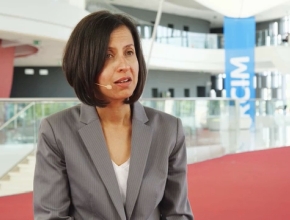Which nonsteroidal anti-inflammatory drugs (NSAIDs) present the highest risk of causing kidney injury?
Jürgen Floege, MD: They are all the same as far as I am concerned. Even the newer cyclooxygenase-2 (COX-2) inhibitors—which are certainly safer when it comes to gastric ulcers and so forth—can cause renal damage, because COX-2 is always present in the kidney, it is constitutively there. As far as I am concerned, they are all the same.
 English
English
 Español
Español
 українська
українська









